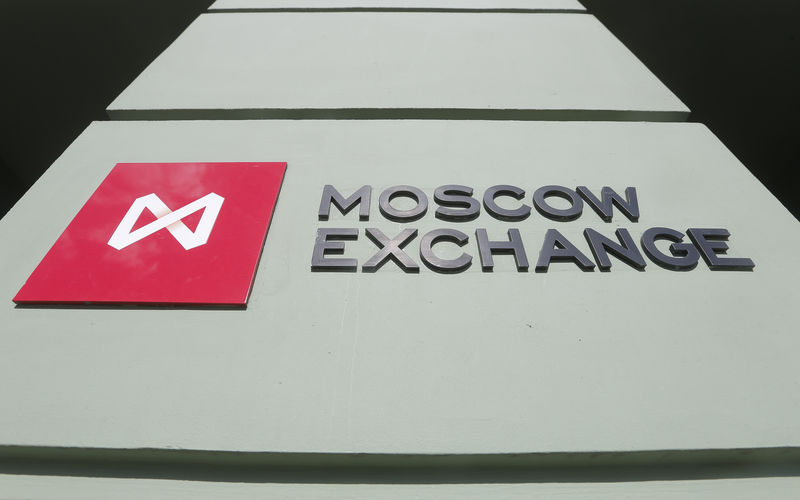By Andrey Ostroukh
(Reuters) - Russia's stock market is likely to struggle to climb higher by the end of this year, along with its global peers, but a Reuters poll of market experts foresees it gaining again in 2020.
Risks of more Western sanctions against Moscow, particularly on its sovereign debt, have partly materialized without causing a sell-off in the stock market. Now, global economic risks are expected to play a more important role for Russian stocks.
After posting solid gains in the first seven months of 2019, Russian stock indexes slipped in August and are likely to finish this year near current levels, before rising again by the end of 2020, a consensus forecast of around 12 analysts showed.
The rouble-based MOEX index (IMOEX) is forecast to decline more than 2% by the end of this year from 2659.35 on Aug. 27. Forecasts in the poll ranged from 2,400 to 2,900.
"The probability of a significant correction in equity markets this year looks low," said Konstantin Bushuev, head of research at Otkritie Brokerage.
The MOEX is seen staying around the year-end level in mid-2020 and then rising to 2,800 by the end of next year, according to the poll, which was conducted in the second half of August.
"Monetary easing is the main supportive factor for equities at the moment besides fiscal stimulus," said Iskander Lutsko, chief investment strategist at ITI Capital.
The U.S. Federal Reserve and the European Central Bank are expected to cut interest rates amid threats of an economic slowdown in the United States and Germany.
Risks are skewed more to the downside, as the S&P 500 index (SPX) may fall to 2,400 to 2,500 next year amid stagnation in the United States, said Evgeny Loktyukhov, chief analyst at Promsvyazbank. The S&P 500 index was last at 2876.47.
"We consider our look at the global economy and markets as a conservative one," Loktyukhov said.
The Russian central bank, contemplating sluggish economic growth and slowing inflation, is also seen lowering the cost of lending by the end of 2019.
Trade wars, particularly the one between the United States and China, are set to remain the key downside risk for markets and could overshadow easier monetary policy.
"If the Fed doesn't deliver enough, (the) trade war becomes uglier and the recession fears realize, we could see a longer period of 'risk-off' across the globe," said Vladimir Miklashevsky, senior economist and trading desk strategist at Danske Bank.
The dollar-based RTS index (IRTS) is forecast to trade at 1,268 points by the end of this year, around 1258.6 on Aug. 27. Forecasts in the poll ranged from 1,110 to 1,450.

It is seen at 1,305 by the middle of 2020 and at 1,325 by the end of 2020.